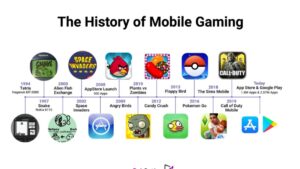In today’s increasingly connected world, privacy, security, and access to information are critical concerns for many mobile users. Proxy mobile apps have become popular tools to navigate these challenges. Whether you’re looking to enhance online privacy, access geo-restricted content, or improve network speed, proxy apps can offer practical solutions.
This article explores what proxy mobile apps are, how they work, their benefits and risks, and what users should consider before installing one. Additionally, we’ll answer some of the most frequently asked questions (FAQs) about proxy mobile apps.
What Are Proxy Mobile Apps?
A proxy mobile app is a software application designed to route your internet traffic through a proxy server. This means that instead of connecting directly to a website or service, your request is first sent to the proxy server, which then forwards the request to its destination. The server acts as an intermediary, allowing you to mask your real IP address and, in some cases, encrypt your data.
Proxy mobile apps are available for both Android and iOS platforms, providing users with anonymity, enhanced security, and the ability to bypass geographical restrictions.
How Do Proxy Mobile Apps Work?
When using a proxy mobile app, all outgoing and incoming data traffic passes through a proxy server. Here’s a simplified breakdown of how this process works:
- User Initiates a Request: A user opens the proxy app and connects to a proxy server. The server could be located in a different region or country depending on the user’s needs.
- Proxy Server Routes Traffic: When you attempt to access a website or app, your request is forwarded to the proxy server. The server replaces your device’s IP address with its own, hiding your real location.
- Server Fetches Data: The proxy server forwards your request to the destination site or app. The response is sent back to the proxy, which then forwards it to your device.
- Data Returned to User: The data is finally delivered to your device, but instead of coming directly from the website, it’s relayed through the proxy.
By masking your IP address, a proxy helps conceal your online identity and makes it harder for websites and hackers to track your real location.
Types of Proxy Mobile Apps
There are several types of proxy apps available, each offering different levels of privacy, security, and functionality. The main types include:
1. HTTP Proxy Apps
- HTTP proxies only work with HTTP traffic. When you use a browser to visit websites, HTTP proxy apps will route the traffic through a proxy server. This type of proxy is suitable for basic web browsing but not ideal for encrypted (HTTPS) traffic.
2. SOCKS Proxy Apps
- SOCKS proxies are more versatile than HTTP proxies. They can handle a broader range of traffic types, including HTTP, FTP, and even peer-to-peer (P2P) networks. This makes SOCKS proxy apps useful for activities like streaming, downloading, and torrenting.
3. Transparent Proxy Apps
- Transparent proxy apps do not modify your requests. These proxies mainly act as gateways, and users might not even notice their presence. They’re typically used in situations where privacy isn’t the primary concern, but where content filtering or bandwidth control is required.
4. VPN-Based Proxy Apps
- Some proxy apps function similarly to Virtual Private Networks (VPNs). These apps not only route traffic through a proxy server but also encrypt it, providing an additional layer of security. This is particularly useful for users who prioritize both privacy and security.
Benefits of Proxy Mobile Apps
Proxy mobile apps offer several advantages to users, from enhanced privacy to improved access. Below are some key benefits of using proxy apps:
1. Increased Privacy
- By masking your IP address, proxy apps allow you to browse the internet anonymously. This makes it harder for websites, trackers, or hackers to trace your online activities back to your device.
2. Bypassing Geo-Restrictions
- Many online services are restricted based on geographic location. Proxy apps enable users to access content that might be blocked in their country or region. This includes streaming services, social media platforms, and certain websites.
3. Enhanced Security
- Some proxy apps offer encryption, protecting your data from eavesdroppers, particularly when using public Wi-Fi networks. Encrypted connections make it more difficult for hackers to intercept your personal information.
4. Load Balancing and Faster Access
- Proxies can help distribute traffic more efficiently across different servers, which can lead to faster load times. This is especially useful for users trying to access content from congested or distant servers.
5. Bandwidth Savings
- In some cases, proxies can compress data or block certain types of traffic (like ads), leading to savings in data usage. This is beneficial for users with limited mobile data plans.
Risks and Drawbacks of Proxy Mobile Apps
While proxy apps offer numerous benefits, they also come with potential risks. It’s crucial to understand these drawbacks before choosing to use a proxy mobile app:
1. Potential Security Risks
- Not all proxy apps offer encryption. Using an unencrypted proxy leaves your data vulnerable to interception. If a proxy server is compromised, hackers can access sensitive information such as passwords or credit card numbers.
2. Privacy Concerns
- Some free proxy apps may log user activity and sell this data to advertisers. This undermines the very privacy and anonymity that users are trying to achieve by using a proxy app.
3. Slower Internet Speeds
- In some cases, proxy apps can slow down your connection speed. Since traffic has to go through an intermediary server, the additional routing can lead to longer load times, especially if the server is located far away.
4. Unreliable Service
- Free or poorly managed proxy services may have unstable servers, causing frequent connection drops or unreliable access to websites.
5. Legal and Ethical Issues
- Using proxy apps to bypass geo-restrictions can violate the terms of service of certain platforms. Additionally, some countries have laws that restrict or ban the use of proxies and VPNs.
Things to Consider Before Using a Proxy Mobile App
Before installing and using a proxy app, it’s essential to keep the following factors in mind:
1. Reputation of the App
- Choose a proxy app with a solid reputation and good user reviews. Many free apps compromise on privacy or security, so it’s often worth paying for a reliable service.
2. Privacy Policy
- Review the app’s privacy policy to understand what data is collected and how it is used. A trustworthy proxy service should have a clear policy that protects your privacy and does not log your activities.
3. Encryption
- Ensure that the proxy app offers encryption if privacy is a major concern. If the app does not encrypt your data, you could be leaving your information vulnerable to hackers.
4. Location of Proxy Servers
- Check where the proxy servers are located. If you want to bypass geo-restrictions, make sure the app offers servers in the countries where the content you need is available.
5. Speed
- Proxy servers can sometimes be slower due to traffic congestion or distance. Look for apps that provide multiple server options and allow you to switch servers to find the best connection speed.
Frequently Asked Questions (FAQs)
1. Are proxy apps legal?
- Proxy apps are legal in most countries, but their use can be restricted in certain regions. It’s essential to check the legal status of proxies in your location before using one.
2. Can proxy apps improve my internet speed?
- In some cases, proxy apps can improve your internet speed by rerouting traffic through less congested servers. However, this isn’t always guaranteed, and in some instances, proxies can slow down your connection.
3. Is using a proxy app the same as using a VPN?
- No, while both proxy apps and VPNs route traffic through a remote server, VPNs also encrypt your data and typically provide a higher level of security and privacy. VPNs are generally more suitable for privacy-focused users.
4. Do free proxy apps work well?
- Some free proxy apps work well, but many come with limitations like slow speeds, limited server locations, or privacy concerns. Free services may also show ads or collect user data to generate revenue.
5. Can proxy apps help me access blocked websites?
- Yes, one of the main uses of proxy apps is to bypass geo-restrictions and access blocked content. However, the effectiveness of this depends on the specific app and proxy server used.
Conclusion
Proxy mobile apps are valuable tools for improving privacy, bypassing geo-restrictions, and enhancing security on mobile devices. However, not all proxy apps are created equal, and users should carefully weigh the benefits against the potential risks. By understanding how proxies work and what to look for in an app, you can make informed decisions to protect your privacy and access the content you need.
Before using a proxy app, consider the type of proxy, server location, and whether the service offers encryption. With the right app, you can enjoy greater control over your internet experience while keeping your personal data safe.



